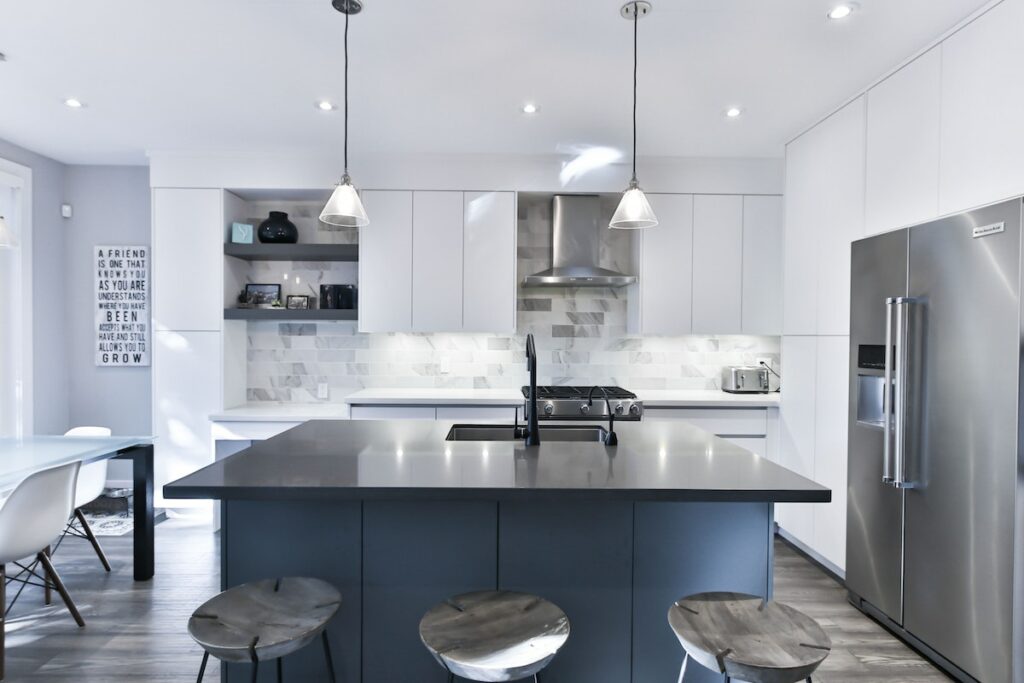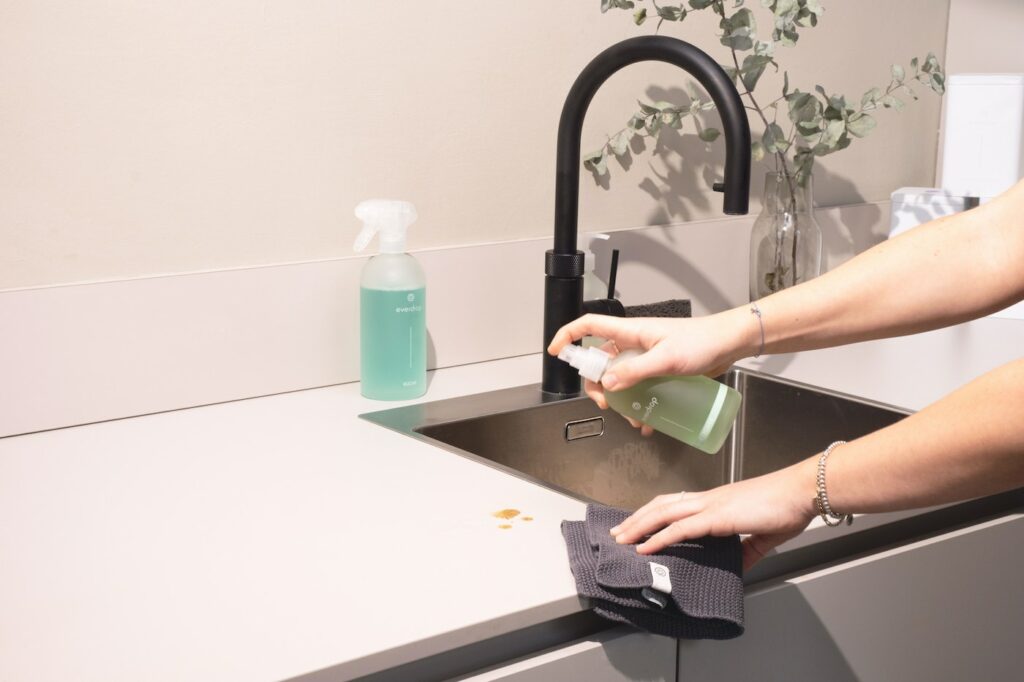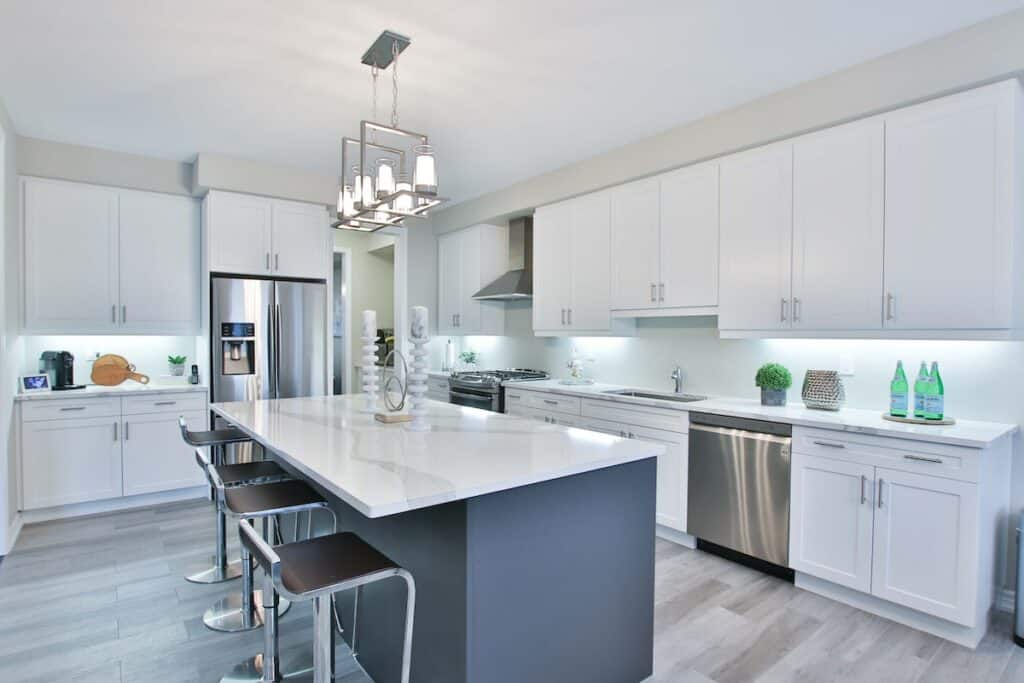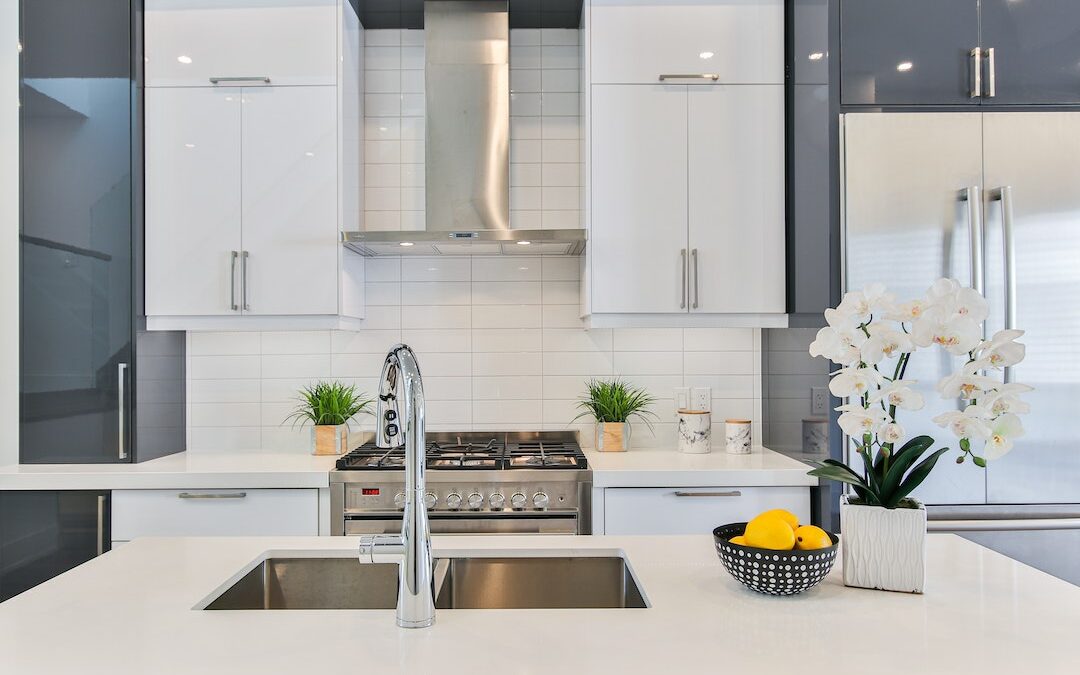Choosing whether to invest in granite or quartz stone worktops can be a tough decision.
From style and durability to cost and maintenance, there are plenty of things to contemplate.
In order to find the best solid stone worktop to suit your space, it’s helpful to compare them side by side so that you can take into account the similarities and differences. With knowledge about each stone’s qualities and characteristics, you’ll be able to make a more informed decision.
At the end of the day, the choice is yours…
But, to make life a little easier, we’ve compiled a handy list of things to consider when opting for quartz or granite worktops.
Read on to find out more!
1. The Appearance of Granite and Quartz Worktops

When it comes to appearance, both granite and quartz countertops will add a sense of elegance and sophistication to your space. However, if you’ve got your heart set on a particular colour or style, you may find that there are more options available with quartz.
Unlike granite, which is a natural stone, quartz used for counters is engineered, meaning that pigment can be added during the manufacturing process. Because of this, you can practically choose any shade or style of veining for your quartz countertop.
Although granite worktops aren’t customisable, there are still many colours and patterns to choose from. What’s more, some people prefer the look of natural stone and appreciate its unique qualities. This is why natural marble worktops are still so popular.
2. Which is More Durable?
Durability refers to a material’s “ability to last over time, resisting wear, breakage and deterioration”. And, when it comes to quartz vs granite, both stone types fare particularly well.
Granite is recognised as one of the most durable igneous rocks on the planet. This is because the mineral structure that forms granite is tightly bonded together, creating a solid and sturdy material. For this reason, granite is an ideal choice for kitchen worktops and high-traffic areas that can be subject to wear and tear.
With a classic quartz worktop, you can also count on the fact that it will be hard-wearing. Not only is quartz another mineral renowned for its durability but it’s also combined with premium quality resins that add to its strength.
In spite of this, it’s important to note that quartz, unlike granite, cannot be used outside. This is due to the resin used in quartz counters, which is susceptible to fading and discolouration from the sun’s UV rays.
This is well worth bearing in mind if you’re ever considering an outdoor bar or counter.
3. Which is Easier to Maintain, Granite or Quartz Kitchen Counters?

Whether you opt for granite or quartz countertops, both will require some level of care and maintenance.
To keep your quartz or granite counters in good condition, it’s recommended that you clean them with a microfibre cloth, gentle detergent and warm water. This combination is more than adequate for removing daily dirt and grime. If you use anything too harsh or abrasive, you may risk damaging them.
In terms of staining and bacteria, quartz worktops are more naturally resistant to marks and harmful pathogens due to the fact that both the quartz mineral and resin used make them completely non-porous.
On the other hand, granite IS considered porous, meaning that, in its natural state, it can absorb liquids which can lead to staining and bacteria growth. To prevent this, a high-quality seal needs to be added before granite can be used for a counter. Because this seal can wear down over time, the counters must be resealed at least once a year to keep them in good shape.
4. How Easy is it to Install Quartz and Granite Worktops?
Both granite and quartz countertops are relatively simple to install provided you enlist the help of an experienced stone worktop fitter. Try to do it yourself, and you’re likely to end up with an uneven mismatched surface that looks messy and unprofessional.
When installing granite, extra care needs to be taken in order to ensure that the veining blends seamlessly. Because granite has naturally occurring colours and patterns, it takes the skill of an expert professional to align the seams properly.
Believe me, It’s very easy to spot when a granite worktop has been installed by an amateur!
5. Which is a More Cost-Effective Worktop?

When it comes to which is cheaper, quartz or granite, you’re never going to get a clear-cut answer.
Ultimately, the price you pay for your worktops is very much dependent on the colour, style, thickness and complexity of the installation. Therefore, your best option is to get a free quote for each stone type so that you can decide which will work better for your budget.
If you’re looking for a very general estimation, quartz and granite are fairly similarly priced, with a quartz counter costing around £375 per m2 and granite costing roughly £435 per m2 (including installation).
If you’ve set your sites on some of our quartz and granite worktops and are in need of a free quote, why not get in touch with our team?
6. Which is a Safer Option?
Before we get stuck into this topic, it’s vital to point out that both granite and quartz worktops are completely safe to use in the home.
However, just in case you’ve heard rumours about the danger of radon gas seeping out of your granite worktops, we thought we’d clear a few things up for you!
Radon gas is a naturally occurring radioactive gas that forms when radium (found in rocks) starts to decay and diffuse into the atmosphere. Although a small amount of radon is present within granite, it poses absolutely no risk to the homeowner.
This is because:
- Scientists have been able to identify areas containing high levels of radium so that they are not used for mining.
- When present, there is such a minute amount of radon, that it simply wouldn’t have any effect on a human if exposed to it.
What’s more, your TV and many other common household appliances emit far higher levels of radiation than a granite worktop ever could!
7. Quartz Vs Granite Surfaces – Which is The Most Heat Resistant?
If you are thinking about buying a granite or quartz counter for your kitchen, you may have questioned which of the two is more heat resistant.
Fortunately, both quartz and granite contain heat-resistant properties which allow them to withstand fairly high temperatures. When comparing the two, granite is considered more resistant to heat, withstanding temperatures up to 450 degrees. Whereas, with quartz counters, anything higher than 150 degrees will cause damage.
Regardless of which stone type you choose, it is still recommended that you avoid direct contact with hot pans in order to prevent harming your work surface.
Choosing Between Quartz or Granite

Now that we’ve given you an insight into the similarities and differences between quartz and granite, hopefully, you’ll feel better equipped to decide which worktop to go for.
As you can see, both quartz and granite are excellent worktop choices due to their durability, luxurious appearance and cost-effectiveness. This makes them both great options for your next kitchen counter or bathroom worktop.
If you’re still deciding between quartz and granite, why not give us a call? Our friendly team are more than happy to provide you with expert help and advice so that you can be sure you’re making the right decision. In need of some inspiration? Take a look at our online gallery to see some of our latest work.
